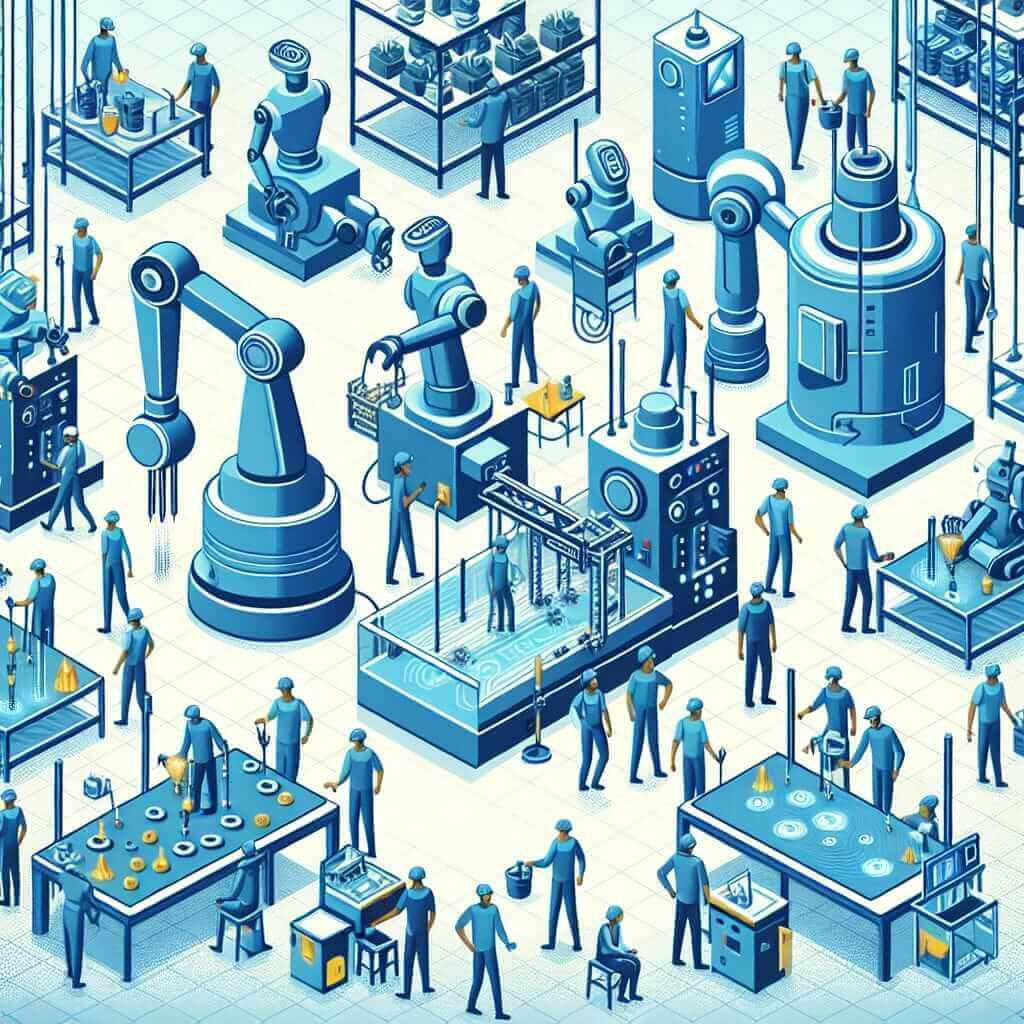The Reading section of the IELTS exam tests your ability to understand and synthesize information from academic texts. One of the trending topics that often appear in recent years is the impact of technology on society, particularly automation in the workforce. Understanding this topic can significantly boost your chances of scoring higher in the Reading test. In this article, we will delve into the social implications of increasing automation, create a sample reading passage, formulate questions, provide detailed answer keys, and offer vocabulary and grammar lessons.
The Popularity of Automation in the Workforce as a Topic
Automation is revolutionizing industries, leading to various social implications. This topic’s relevance has soared, reflecting in IELTS Reading passages. Previous exam entries featured technology advancements’ effects, making it a probable topic.
Understanding the Passage
Sample Passage on Automation
Level: Medium
Automation has evolved drastically, redefining the landscape of employment in various sectors. Industries like manufacturing and retail are witnessing profound changes due to the integration of robots and Artificial Intelligence (AI). While automation promises efficiency and cost reduction, its social implications are complex and multifaceted.
Firstly, automation brings about job displacement. Tasks once performed by humans are now managed by machines, leading to a significant shift in the demand for labor. For instance, retail sectors increasingly adopt self-checkout systems, thereby reducing cashier positions. However, this displacement is not universal; it varies by geography and industry.
Secondly, automation engenders a demand for new skill sets. The workforce must adapt by acquiring technical skills to operate, manage, and develop automated systems. Educational institutions and vocational training programs are pivotal in this transition, offering courses in coding, robotics, and AI.
Moreover, automation influences economic disparity. There is a growing divide between those who possess the requisite skills for automation-centric jobs and those who do not. This disparity can exacerbate social inequality, particularly in regions with limited access to advanced education.
Nevertheless, automation has the potential to improve the quality of jobs by eliminating mundane tasks, thus allowing workers to engage in more creative and rewarding activities. For instance, in healthcare, robots handle repetitive tasks, enabling doctors to focus on patient care.
In summary, while automation augments productivity and can elevate job satisfaction by removing monotonous tasks, it also poses challenges such as job displacement and economic disparity. Addressing these challenges requires concerted efforts from governments, educational institutions, and private sectors to ensure a smooth transition for the workforce.
IELTS Reading Practice Questions
Questions:
-
Multiple Choice:
What is one of the primary benefits of automation mentioned in the passage?- A. Increased employment opportunities
- B. Improved operational efficiency
- C. Decrease in educational requirements
- D. Reduction in global warming
-
True/False/Not Given:
Automation impacts all industries and regions equally. -
Matching Headings:
Match each paragraph with the correct heading:- i. Automation and Economic Disparity
- ii. Job Displacement due to Automation
- iii. Educational Shifts Required by Automation
- iv. The Overall Impact of Automation
Answer Key with Explanations
-
B. Improved operational efficiency
- The passage explicitly mentions, “Automation promises efficiency and cost reduction.”
-
False
- The statement “this displacement is not universal; it varies by geography and industry” indicates that the impact is not equal across all domains.
-
i. Paragraph 3
- ii. Paragraph 2
- iii. Paragraph 4
- iv. Paragraph 5
- The headings reflect the primary focus of each paragraph as per the details in the passage.
Common Mistakes and Tips
- Misinterpretation of Keywords: Ensure you understand the context around keywords to avoid incorrect answers.
- Incomplete Reading: Always read the entire passage carefully. Skimming can lead to missing crucial information.
Vocabulary from the Passage
- Displacement (noun) /dɪsˈpleɪsmənt/: the removal of something from its usual place.
- Engenders (verb) /ɪnˈdʒɛndərz/: causes or gives rise to.
- Disparity (noun) /dɪˈspærəti/: a great difference.
- Mundane (adjective) /ˈmʌndeɪn/: lacking interest or excitement; dull.
Relevant Grammar
- Relative Clauses: “Tasks once performed by humans are now managed by machines.” Here, “once performed by humans” adds essential information about the tasks.
Conclusion
To excel in the IELTS Reading section, you need to be familiar with current and relevant topics like automation in the workforce. Practice thoroughly with passages and questions to improve your comprehension skills.
For a higher score, focus on understanding the broader context, improving vocabulary, and mastering grammar structures.

By staying updated and practicing regularly, you’ll be well-prepared for any topic that comes your way. Happy studying!